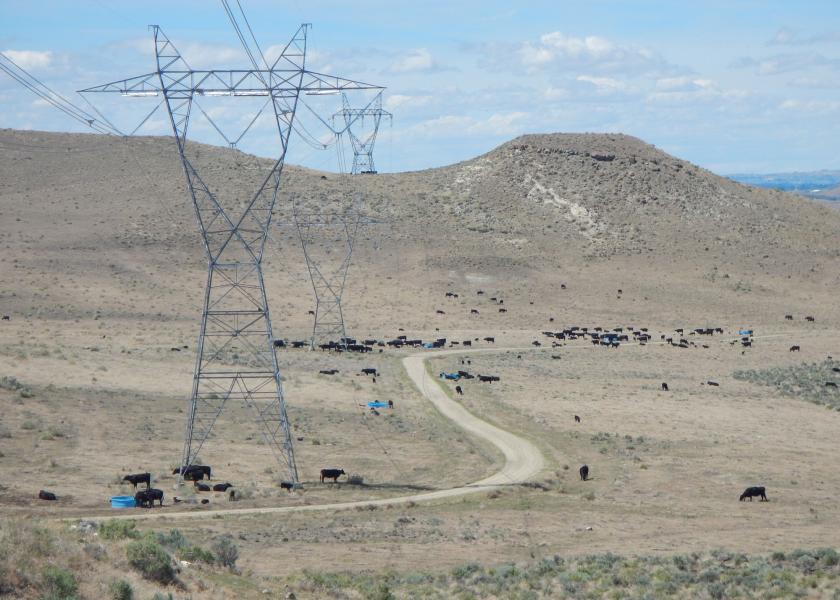USDA-ARS Scientist Enlists Cattle to Create Fire Breaks

According to rangeland experts, wildfires in the western Great Basin region scorched more than 14,600 square miles in just 10 years—nearly the land mass of Maryland and Delaware combined.
It seems that a few herds of cattle could have helped prevent some of the devastation caused by wildfires.
A scientist from USDA’s Agricultural Research Service (ARS) is managing a research project that uses livestock to create firebreaks through targeted grazing. His program requires the cooperation of area ranchers to strategically target the grazing patterns of cattle. The goal is for livestock to eat extensive strips of highly flammable cheatgrass down to 2- to 3-inch stubble. This reduces the fuel load that could otherwise turn small rangeland fires into megafires in just a few hours.
“Wildfires have become more frequent, threatening human lives, property, and critical natural and cultural resources,” said Pat Clark, a rangeland scientist based at the ARS Northwest Watershed Research Center, in Boise, ID. “Suppressing wildfires costs more than $2.4 billion annually across all wildlands.”
“The current experiment involves projects in Idaho, Nevada, and Oregon,” Clark said. “Timing of the grazing is critical and is complicated by the dynamics of weather, plant growth cycles, and livestock herd management.”
In just 4 years, targeted grazing has intercepted three wildfires around Elko, NV. Preventing these fires conserved wildlife habitat, recreational opportunities, and other ecosystem services.







